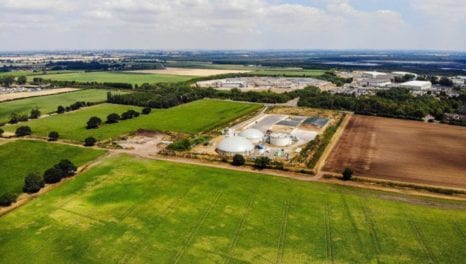Report claims hydrogen could help decarbonise energy system
A new report by the Committee on Climate Change (CCC) says hydrogen is a credible option to help decarbonise the UK energy system.
22nd November 2018 by Networks

But the report states that its role depends on early Government commitment and improved support to develop the UK’s industrial capability.
The CCC’s Hydrogen in a low-carbon economy report finds that hydrogen can make an important contribution to long-term decarbonisation if combined with greater energy efficiency, cheap low-carbon power generation, electrified transport and new ‘hybrid’ heat pump systems, which have been successfully trialled in the UK.
Lord Deben, chairman of the Committee on Climate Change (CCC), said: “Hydrogen has the potential to contribute to near-zero carbon energy emissions if used strategically. The Government must now decide whether it wishes to develop a UK hydrogen option, taking decisions now that will see the first deployment in the 2020s. This must be in parallel with efforts to improve energy efficiency, build further low-cost renewables and get carbon capture and storage underway. The time for the Government to move from theory to practice has arrived.
“Most exciting of all is the prospect of producing low-carbon heat; using smart hybrid heat pumps in combination with natural gas in the short-term, with the potential for hydrogen in the long-term.
“The future now rests on Government making a quick decision and fully committing to low-carbon heat within the next three years. This is important to achieving the existing 2050 emissions target, but even more important as we consider whether it is possible for the UK to reach ‘net-zero’ emissions in the future.”
The report finds hydrogen could replace natural gas in parts of the energy system, where electrification is not feasible or is prohibitively expensive, for example in providing heat on colder winter days, industrial heat processes and back-up power generation.
Hydrogen should be viewed as a credible option in the next stage of the UK’s energy transition.
The report’s key recommendations to Government are:
- Government must commit to developing a low-carbon heat strategy within the next three years. This would encourage commercial investment in producing hydrogen for one of its key uses: providing heating for buildings and industry.
- Significant volumes of low-carbon hydrogen should be produced in a carbon capture and storage (CCS) ‘cluster’ by 2030 to help the industry grow. Hydrogen should be produced for applications that require no major infrastructure changes (e.g. power generation, injection in to the gas network and depot-based transport).
- Government must support the early demonstration of the everyday uses of hydrogen in order to establish the practicality of switching from natural gas to hydrogen. This requires the development of pilot projects for transport, industry and buildings uses.
- There is low awareness amongst the general public of reasons to move away from natural gas heating to low-carbon alternatives. There needs to be public engagement on the future of the UK’s heating choices. However, the window to engage with people is closing.
- A strategy should be developed for low-carbon heavy goods vehicles (HGVs) which encourages a move away from fossil fuels and biofuels to zero-emission solutions by 2050. Decisions about how to achieve this are required in the second half of the 2020s. Therefore, demonstrations of hydrogen HGVs will need to be made soon.
The CCC will continue to monitor how technological developments could impact the future role of hydrogen in the UK’s transition to a low-carbon economy.
Comments
Login on register to comment
Related content

Gas
Cadent backs launch of major bio-CNG HGV refuelling station
Gas network’s £250,000 infrastructure investment ensures supplies to existing connected customers have not been impacted

Gas
Editor’s blog: The biggest tests of resilience are yet to come
Network content director Jane Gray reflects on the industry's coronavirus response to date and the challenges still to come.

Gas
From the front line: Chris Garside and Andy Simcoe, Northern Gas Networks
Key workers across the power and gas networks are playing a critical role in the national response to Coronavirus. Network has committed to profiling their stories.
Related supplier content

Power
Load patterns and lockdown: how Covid-19 is impacting electricity networks
Insights into dynamics on the low voltage network as the outbreak unfolds

Downloads
Protect electrical equipment from insulation failure
Insulation faults are a major cause leading to the eventual failure of electrical equipment. Partial discharge (PD) is a very reliable indicator of developing insulation faults. Regular PD testing allows users to detect and analyze PD activity

Heat
How E.ON. is helping the City of London become a zero emissions city
Discover Citigen. Deep in the heart of our bustling capital